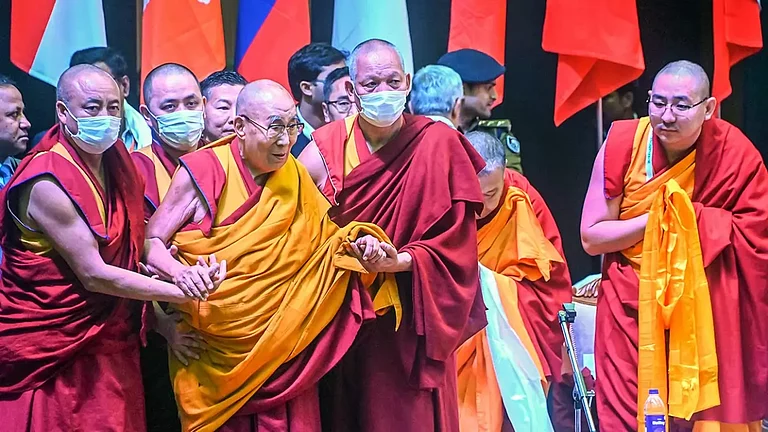The Supreme Court on Monday refused to entertain a plea by Rashtriya Lok Morcha President and former Union Minister Upendra Kushwaha, challenging the powers of the Bodh Gaya Temple Act, 1949. The court suggested Kushwaha can approach the concerned high court. A writ petition was filed seeking to hand over the management of the Mahabodhi Mahavihara at Bodh Gaya to only Buddhist members of the BMTC.
A plea challenging the legality of the 1949 Act came up for hearing before a bench of Justices M M Sundresh and K Vinod Chandran. "I (petitioner) have prayed that the Bodh Gaya Temple Act should be annulled as ultra vires," the counsel said.
"We are not inclined to entertain the petition under Article 32 of the Constitution of India. However, liberty is given to the petitioner to approach the high court," the bench said.
Article 32 of the Indian Constitution grants individuals the right to directly approach the Supreme Court for the enforcement of their fundamental rights. "Why don't you do it before the high court?" the bench asked.
Bodh Gaya Temple Act 1949 was enacted to establish a management committee for the Bodh Gaya Temple, a significant Buddhist pilgrimage site, and to address disputes between Hindu and Buddhist communities. The Act created an eight-member committee with equal representation from both communities, but the District Magistrate (DM), who is also the ex-officio chairman, is often a Hindu, leading to concerns about Buddhist autonomy and representation.
Upendra Kushwaha is a former Minister of State for Human Resource Development. He is also the President of Rashtriya Lok Morcha. In April 2025, he filed a writ petition to amend in the provisions of the Bodh Gaya Temple Act, 1949 so that the management of the Temple can be handed over to Buddhists.
“The Buddhists are demanding that people from other religions should not be part of the Bodh Gaya Temple Management Committee (BTMC), which oversees the management of the world-famous Mahabodhi temple. The BTMC comprises four Buddhists and Hindus each while the Gaya district magistrate serves as its ex-officio chairman. I demand that authorities concerned address the issue and ensure Buddhists’ control over the temple management committee by amending provisions of the Bodh Gaya Temple Act, 1949. I urge people belonging to the Sanatan Dharma to come forward and hand over the control of the temple, which is Buddhism’s holiest shrine, to the Buddhist,” Kushwaha said while filing the petition in April.
The Mahabodhi temple complex in Bihar's Bodh Gaya, a UNESCO World Heritage site, is one of the four holy areas related to the life of Lord Gautam Buddha. The temple complex comprises a 50-metre high grand temple, the Vajrasana, the sacred Bodhi tree and six other sacred sites of Buddha's enlightenment.

















